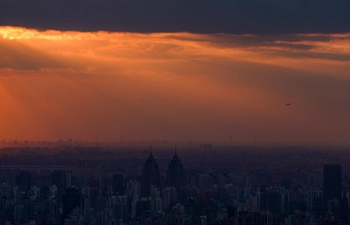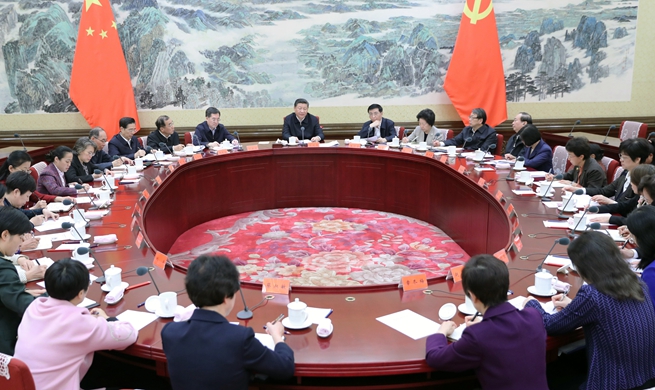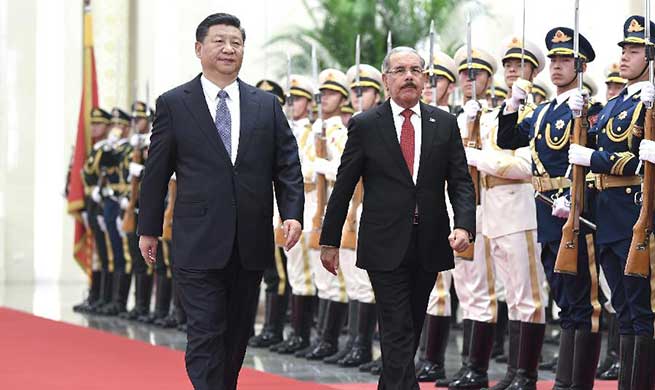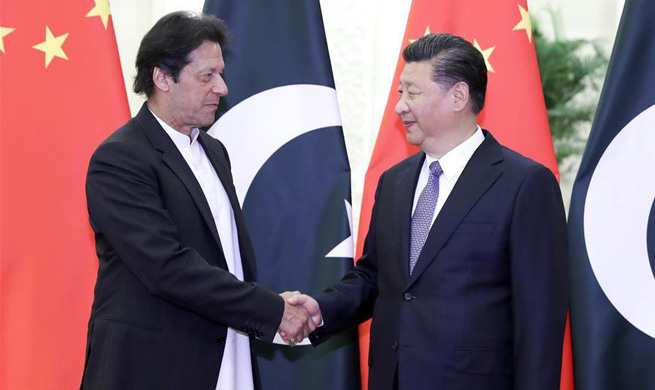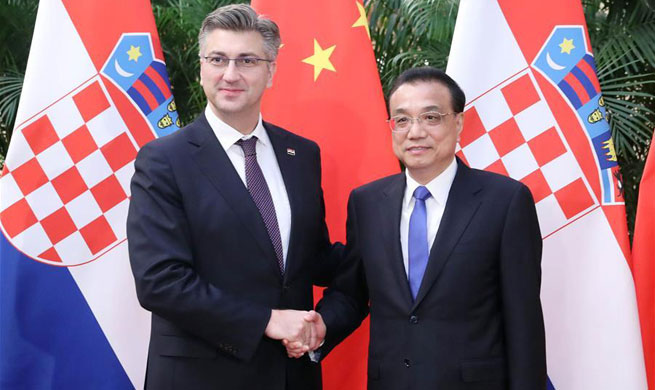by Hassan Rouhvand
TEHRAN, Nov. 2 (Xinhua) -- The U.S. decision on Friday to return all sanctions against Iran lifted under the 2015 Iranian nuclear deal was met with tough responses from the Islamic republic.
The sanctions, the second batch of its kind, will take effect on Monday, targeting Iran's shipping, financial and energy sectors, according to the administration of U.S. President Donald Trump
All nations that still buy Iranian oil and do business with blacklisted Iranian entities will be punished under the sanction regime, except eight jurisdictions that will be given temporary waivers.
Following Trump's decision to quit the historic Iran nuclear deal on May 8, the United States vowed to re-impose sanctions lifted under the accord against Iran and inflict punishments like secondary sanctions on nations that have business links with Iran.
In response to the U.S. fresh wave of embargo, Iran's Foreign Ministry Spokesman Bahram Qasemi told state IRIB TV that his country has "no concerns" over the fresh U.S. sanctions on its crude sales and banking sector.
The Iranians will prove that they are not intimidated by the U.S. sanctions which are in effect "psychological warfare," Qasemi said.
The United States has not succeeded in persuading global financial institutions and companies to follow its sanctions against Iran, he added.
On Wednesday, Iranian President Hassan Rouhani shrugged off at the U.S. sanction threats, expressing confidence that the Iranian government is not intimidated by the U.S. threats.
The Iranian president assured the Iranians that his administration is resolved to alleviate the people's economic hardship.
Iranian experts have also played down adverse impacts of the renewed sanctions, saying they are prepared for the "worst scenario" as the United States is globally isolated in its move against the Iranian international deal.
"Iran's situation will improve after Nov. 4," said Sadeq Zibakalam, a professor pf politics at the University of Tehran.
The "psychological impact" of the upcoming sanctions on the Iranian society plays a more important role than the sanctions themselves, Zibakalam noted.
"Everyone is waiting to see what happens after Nov. 4. But when that day comes and nothing happens, as I predict, this psychological effect on the society will be removed," he said.
For Iranian political and economic experts, the recent sharp depreciation of Iran's rial against foreign currencies and rampant inflation of basic commodities, industrial materials, services and housing, were the psychological response of Iran's domestic market to Trump's move to reinstate sanctions on Tehran.
In less than three months, Iran's local currency lost over 100 percent of its value. However, the intervention of the Central Bank of Iran caused rial to regain about 30 percent of its value in October.
"After No. 4, there will not be a catastrophe, and, as a result, a state of peace will prevail which will in turn lead to the resolution of a lot of issues," Zibakalam said.
Meanwhile, Iran relies heavily on the European assistance against the U.S. pullout of the nuclear deal and their promises to guarantee Iran's interests under the 2015 nuke accord.
Abdolnaser Hemmati, governor of the Central Bank of Iran, announced last week that Iran and the European Union are working to finalize a monetary transaction mechanism soon to avoid the U.S. banking sanctions.
The legal entity will allow European companies to continue to trade with Iran in accordance with the EU law and could be open to other partners in the world, Federica Mogherini, the EU foreign and security policy chief, said in September.
Besides, Iran started on Sunday to offer crude oil to the private sector for export ahead of the U.S. sanctions on its energy sector.
However, the Iranian economic growth will slow down, and poverty and unemployment expected to rise to an alarming level after Nov. 4, experts said.
Brian Hook, director of policy planning for U.S. State Department, said earlier that over 50 international firms have announced their intent to leave the Iranian energy and financial markets.
The decline in foreign investment initially affects the oil and petrochemical industries and then begins to affect other sectors, eventually reaching small businesses and households.
On Oct. 11, Iran's Supreme Leader Ayatollah Ali Khamenei urged Iranian officials to join efforts to counter the negative impacts of "brutal American sanctions" against the Iranian nation.
He acknowledged "the soaring prices and the drop of purchasing power of those lower-income Iranians (that) have put pressure on them."
"To solve certain key economic issues, including those gripping the banking system, liquidity, unemployment, inflation and the budget planning process," the Iranian officials need to take decisive and practical decisions, he stressed.
The top Iranian leader also ruled out all possibility of re-negotiating with "cheating" Washington over the Iranian 2015 nuclear deal and Tehran's missile program.




